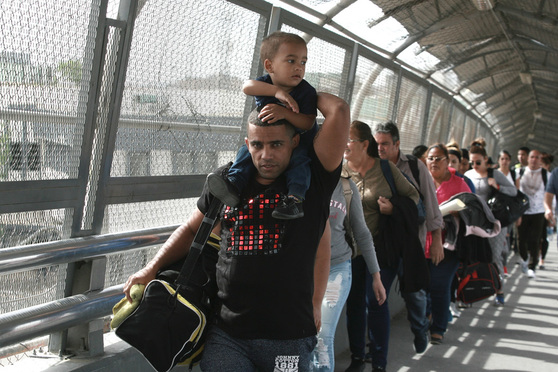Recent reports indicate that the U.S. Department of Homeland Security is erecting tents along the border that will be used as temporary courts. The hundreds of judges assigned to these courts won’t be in the tents. Instead, they’ll be appearing remotely from all over the country, holding mass video proceedings for migrants who are seeking humanitarian protection. These migrants are being subjected to Migrant Protection Protocols—an inaccurate name for a policy that jeopardizes the safety of asylum-seekers by requiring them to remain in dangerous conditions in Mexico while they wait for U.S. immigration courts to review their asylum cases.
Holding court hearings in camps will have serious consequences. To begin with, there is almost no legal counsel available to people subject to MPP, meaning most asylum-seekers will need to navigate highly complex asylum law on their own in a language they don’t speak. Even those with counsel likely will not be able to meet their attorneys until moments before their scheduled immigration court hearing. Relying on video makes it harder for judges to see, hear and interact during the hearing. Importantly the judge will be less able to observe body language or facial cues that are crucial for assessing the credibility of someone testifying about persecution or violence. At these new courts, judges will also be compelled to decide cases on an exceptionally tight docketing schedule.


 Cuban migrants are escorted by Mexican immigration officials in Ciudad Juarez, Mexico, as they cross the Paso del Norte International bridge to be processed as asylum-seekers on the U.S. side of the border in April 2019. (Photo: Christian Torres/AP)
Cuban migrants are escorted by Mexican immigration officials in Ciudad Juarez, Mexico, as they cross the Paso del Norte International bridge to be processed as asylum-seekers on the U.S. side of the border in April 2019. (Photo: Christian Torres/AP)
